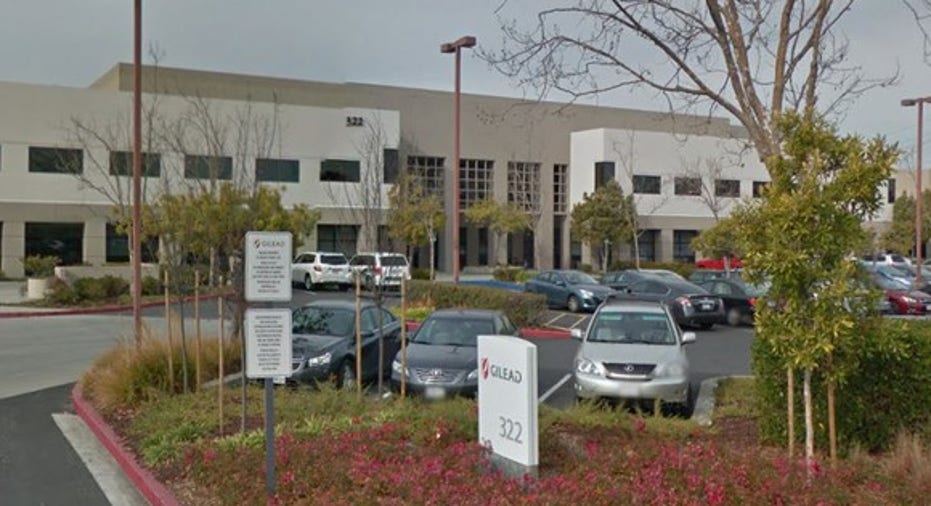3 Biotech Stocks to Buy If the Market Crashes

Image source: Getty Images.
Celgene Corp. , Regeneron Pharmaceuticals, and Gilead Sciences aren't immune to broader market pops and drops, but their track records for developing top-selling drugs is envy-inspiring, and that may make picking up their shares in a tumbling tape savvy.
No. 1: Targeting cancer care
When you're diagnosed with a life-threatening disease like cancer, you're unlikely to forgo treatment because of uncertain economic times. As a result, cancer-drug maker Celgene Corp isn't likely to see its sales or profit nosedive because markets take a breather, or the economy stumbles.
Celgene is the drugmaker behind two billion-dollar blockbusters commonly used to treat multiple myeloma: Revlimid and Pomalyst. Revlimid is the market-share-leading first- and second-line therapy in this indication, and Pomalyst is used in third-line treatment. Celgene expects Revlimid sales to be as high as $6.7 billion, and Pomalyst sales greater than $1 billion this year.
Celgene also produces the pancreatic cancer drug Abraxane, and it's collaborating with Juno Therapeutics on next-generation blood cancer drugs. Abraxane's sales could reach $1 billion this year, and the first drug from its partnership with Juno Therapeutics, JCAR015, could be in front of regulators for approval next year.
Patents protecting Celgene's various cancer drugs provide revenue protection for investors that stretches into the 2020s, so there's little patent risk threatening its top line. And since R&D investments could pan out with top-sellers in the future, such as JCAR015, Celgene thinks its sales could climb from about $10.75 billion this year to $21 billion in 2020. If it delivers on that outlook, then investors who pick up shares in this company could end up profiting handsomely.
Image source: Regeneron Pharmaceuticals.
No. 2: Massive money-making markets
Sales of Regeneron Pharmaceuticals' Eylea are on a $4.8 billion pace this year, and revenue for the vision improving drug could head even higher because Eylea is used to treat age-related macular degeneration (AMD) and diabetic macular edema (DME), two patient populations that are growing because of aging baby boomers.
Eylea's sales shot 40% higher to $4.1 billion last year, and in Q1, Eylea sales grew 44% year over year to $1.2 billion. Although Regeneron has to split ex-U.S. revenue with co-developer Bayer, Regeneron still reported that net product sales plus Bayer collaboration revenue totaled more than $900 million last quarter. That revenue, plus money it received via a wide-ranging collaboration with Sanofi , resulted in total first-quarter revenue of $1.2 billion, up from $870 million a year ago.
Regeneron and Sanofi have already won FDA approval for Praluent, a next-generation cholesterol-busting drug that could eventually become a big seller, and the two companies are awaiting a FDA decision on their rheumatoid arthritis drug, sarilumab. The FDA is expected to make a decision on sarilumab on Oct. 30, and if it gives sarilumab a green light, then the drug will face off for market share againstHumira, a $14 billion megablockbuster.
The two companies also recently reported impressive late-stage results for dupilumab, a therapy for eczema that could soon be awaiting approvalat the FDA. Because eczema affects millions of people globally, it could be a blockbuster, too. If so, Regeneron has a chance of havingfour separate billion-dollar drugs on the market by the end of next year.
Image source: Gilead Sciences, Inc.
No. 3: Underappreciated opporunity
Sale of its blockbuster hepatitis C drugs are leveling off, so Gilead Sciences' shares are being ignored by investors this year. However, forgoing Gilead Sciences because of flattening HCV revenue might be a mistake.
Although competition is driving drug prices down in hepatitis C, the FDA is slated to issue a go/no-go decision on the company's latest hepatitis C therapy later this month. If the FDA approves this drug, it could go a long way toward protecting Gilead Sciences' HCV market share even as payers are increasingly opening up access tohepatitis C drugs.
Gilead Sciences could also enjoy tailwinds from increasing demand for its HIV drugs. The company is the market share leader in HIV treatment, andthanks to a newly improved formulation of Viread that's sold as TAF, the company is refreshing its entire lineup of HIV combination therapies. These therapies -- and a longer-living patient population -- helped GileadSciences' HIV drug sales climb $436 million year over year to $2.8 billion last quarter.
Gilead Sciences' research pipeline could also begin delivering some big wins soon that could kick-start revenue growth. The company is working with Galapagos on on filgotinib, a rheumatoid arthritis drug, and phase 3 trials are expected to start soon. Additionally, Gilead Sciences has four medicines in the works for nonalcoholic steteohepatitis, a fast-growing cause of liver transplant.
Since shares have already retreated this year, investors can buy Gilead Sciences shares for only 7 times next year's earnings estimate. That's not a lot to pay for a top-tier company that could have new blockbusters in the wings, and for that reason, this might be the best of these three companies to buy if markets sour.
The article 3 Biotech Stocks to Buy If the Market Crashes originally appeared on Fool.com.
Todd Campbell owns shares of Celgene and Gilead Sciences.Todd owns E.B. Capital Markets, LLC. E.B. Capital's clients may have positions in the companies mentioned. Like this article? Follow him onTwitter where he goes by the handle@ebcapital to see more articles like this.The Motley Fool owns shares of and recommends Celgene and Gilead Sciences. The Motley Fool recommends Juno Therapeutics. Try any of our Foolish newsletter services free for 30 days. We Fools may not all hold the same opinions, but we all believe that considering a diverse range of insights makes us better investors. The Motley Fool has a disclosure policy.
Copyright 1995 - 2016 The Motley Fool, LLC. All rights reserved. The Motley Fool has a disclosure policy.



















